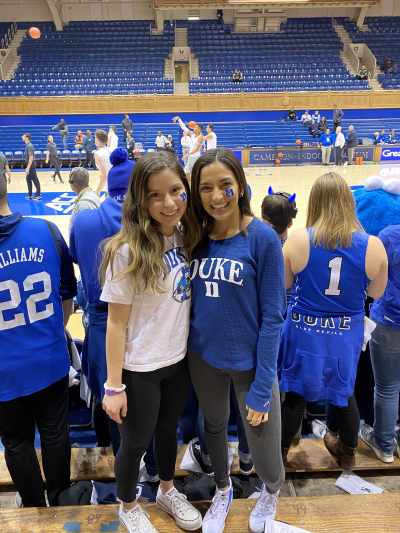MMS In Reality: Internships in Risk Assessment

The Markets & Management Studies Certificate is a great addition to any Duke academic track. It’s the perfect way to get exposure to business studies as an undergraduate.
But when it comes time to put that into practice and find an internship, it can be difficult for potential employers to understand just exactly how the certificate fits in with what you’re studying and why it’s useful. It can be even more difficult for you, the student, to explain that to potential employers. I’ve found that the key is to show employers just how your interests intersect, even when they seem disparate.
For context, I major in political science with a minor in history alongside the certificate. I decided to add the certificate to my degree after taking a class called ‘Political Risk Analysis’ (POLISCI 231) during my first year. That class was the first time that I realized how politics, policy and business interact — and they do so in a big way. In fact, most scholars agree that we’ve experienced a societal shift where businesses drive policymakers, not the other way around.
I immediately knew I wanted to work in risk assessment, but it struck me that the field is a bit niche, and the term ‘risk assessment’ itself is a bit murky. Risk assessment is the practice of identifying and analyzing events that could impact individuals, assets, and investments, and it includes making judgments on how tolerable that risk is to the firm or investor. It requires looking at a host of indicators, such as market health, economic growth indicators, current and potential regulations, political actors, and more. Given that it’s a niche interest, I tried to find other fields that would allow me to employ the same types of business skills and analysis, and that’s when I turned to MMS.
By the time I was ready to apply for internships last year, I had learned the fundamentals of economics, basic marketing techniques, and (at a high level) how to analyze governments, policymakers, and regulations. I thought I was ready to jump in… but I didn’t even know how to find a job in risk assessment. A LinkedIn search yielded some promising results, but I ultimately got an interview with a strategic advisory firm through a professor. And there I got the dreaded question: “Why are you interested in this job?”
I chose ahead of time not to go with a scripted, prepared response. I decided to go for the genuine, honest answer, something I recommend to anyone, no matter what they’re interviewing for. I told the interviewer why I cared about business — why I, someone who spends most of her time reading geopolitical theory, cares about investment, regulation, and what companies do with their money. Capital has the power to change the world, and it does so every day. At the same time, governments are passing more stringent regulations and policies that will impact how that capital is moved, invested, and channeled into everyday lives. I care about the intersection of business and politics because that’s what drives power in our world – that’s where the decisions are being made, and we need people at that table with a perspective on both sides of the issues.
I got the job — and the next two after that, because I did the same thing: I explained why I was passionate about the intersection of business and politics, putting a degree that looks mismatched on the surface into context.
Over time, I learned how to articulate my interest in that intersection more clearly and took classes that allowed me to focus on the areas of knowledge I lack. MMS is versatile. It allows you to fill in gaps in your knowledge however suits you best, and then you can take that out with you into the world as a real, complex, and nuanced skill set.
TL;DR: Be genuine and honest in your applications and interviews. The reason you chose to add MMS to your degree is the same reason employers will want to hire you, but only if you share that passion with them. Use the certificate’s versatility to your advantage: your interest in business can take many forms, and you should use electives to explore those intersections.
Still looking for a summer experience or internship? Check out these opportunities: https://experiences.duke.edu/




